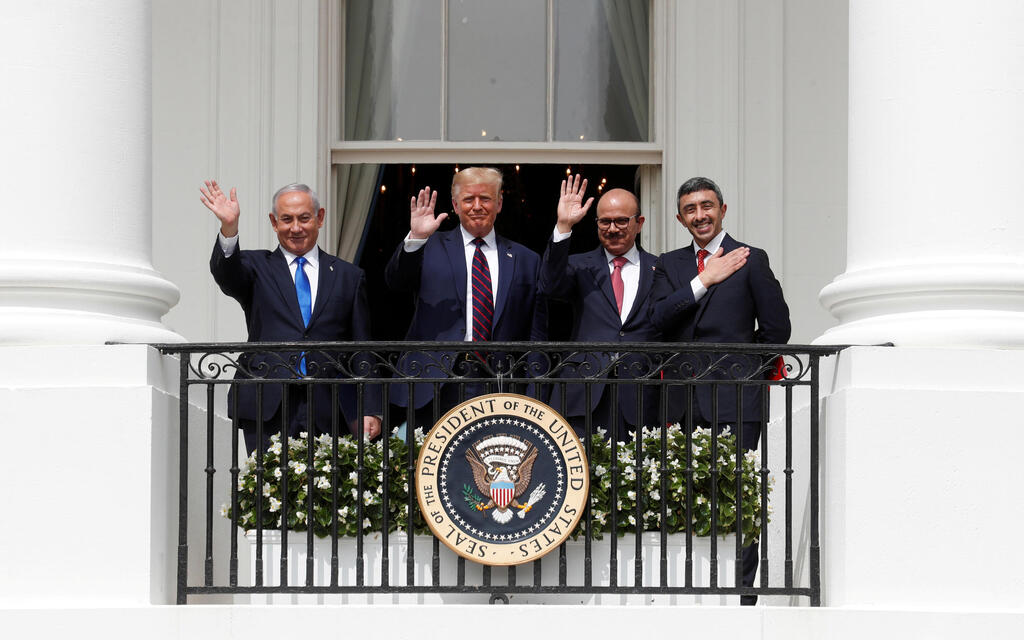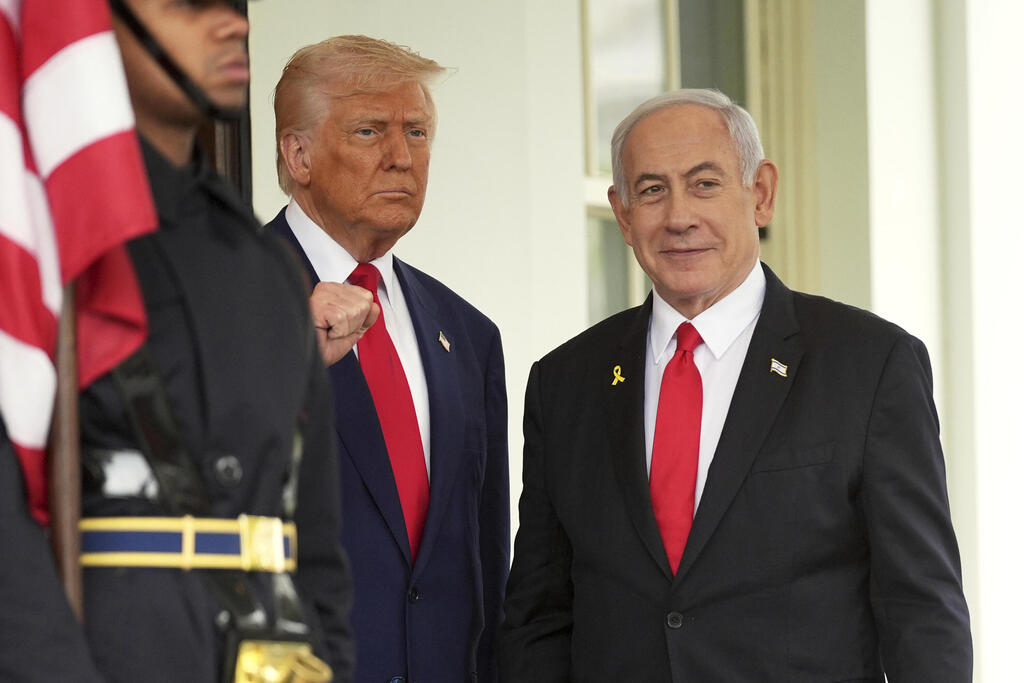There’s a reason why Donald Trump and Benjamin Netanyahu continue to make headlines together. It’s not nostalgia; it’s a strategy. It’s the clear-eyed, unflinching understanding that the relationship between the United States and Israel is not just about politics or press releases—it’s about survival. More importantly, it’s about reshaping a broken region, one power play at a time.
Over the past few days, as whispers swirl around a new nuclear deal with Iran, the media have focused on Trump’s comments urging Netanyahu not to strike the Islamic Republic while negotiations are still in motion. “I told him this would be inappropriate to do right now because we’re very close to a solution,” Trump told reporters.
3 View gallery


Prime Minister Benjamin Netanyahu and US President Donald Trump
(Photo: Kevin Dietsch, GettyImages)
Let’s be clear: this isn’t weakness. This isn’t capitulation. This is coordination. Trump is not Barack Obama, and this is not 2015. We’re not talking about backroom deals that empower Tehran and alienate Jerusalem. We’re talking about real leverage, hardline inspections and a clear message to the mullahs: no nukes. Period.
Netanyahu understands this. He always has. These two men operate on instinct. They don’t need hourly calls or press conferences to prove their unity. Their alliance has always been about one thing: no daylight. Not just in appearance, but in policy, in timing and principle. Compare that to the days of the Obama administration, when “daylight” became an actual foreign policy goal. Washington leaked criticism, drew red lines in the sand and empowered Iran in the name of “balance.” Israel—the United States’ greatest ally in the region—was left out in the cold while billions of dollars in cash were flown to Tehran.
That era is what Trump and Netanyahu swore to never return to. And they haven’t. Now, with Trump back in power and Netanyahu in office, the gravitational pull of their strategic bond continues to shape headlines, calm markets and rattle Iran’s regime.
And yet, the media wants you to believe otherwise. They’re trying desperately to create tension. To invent distance. “Trump tells Israel to stand down.” “Netanyahu pushes back.” These are not serious headlines. They’re fantasy fan fiction for people who miss the days when American presidents gave Iran breathing room and treated Israel like a liability. But those days are over. No matter what some editorial board wants, no one is putting the Islamic Republic back on life support. No one is giving them another sunset clause, another $100 billion, another runway to the bomb. Because now we know better.
Trump and Netanyahu may be controversial figures. Plenty of people—left, right, Israeli, American—don’t trust their every word. Their motives are questioned. Their styles are criticized. But their resumes tell a different story. The facts tell a different story. And the record shows this: when they were in charge, the region got more stable, not less. Trump and Netanyahu may take different approaches—Trump with the art of the deal, Netanyahu with the calculus of war—but their endgame is the same: Iran doesn’t get the bomb. Israel doesn’t stand alone. And America doesn’t fund its enemies.
Get the Ynetnews app on your smartphone: Google Play: https://bit.ly/4eJ37pE | Apple App Store: https://bit.ly/3ZL7iNv
It’s no coincidence that during Trump’s presidency, we saw the most pro-Israel foreign policy in modern American history: moving the embassy to Jerusalem, recognizing the Golan Heights, cutting off UNRWA, withdrawing from the Iran deal and brokering the Abraham Accords. Real peace. Real strength. No daylight.
3 View gallery


Netanyahu, Trump and the foreign ministers of Bahrain and the UAE at the Abraham Accords signing ceremony at the White House, September 2020
(Photo: Reuters)
Netanyahu, Trump and the foreign ministers of Bahrain and the UAE at the signing of the Abraham Accords at the White House
The current moment is a test—not of friendship, but of memory. Do we remember what the world looked like before this alliance? Do we remember buses blowing up in Tel Aviv and Iranian proxies flooding Syria? Do we remember American diplomats lecturing Israelis about morality while the Islamic Republic plotted attacks in Europe? We remember. And so do Trump and Netanyahu.
Which is why we trust them. Not because they’re perfect, but because they’re clear. Because they act. Because they don’t blink when it comes to the safety of the Jewish state or the stability of the Middle East. So if Netanyahu holds fire while Trump works the deal, that’s not a betrayal. That’s coordination. That’s the grown-up version of diplomacy—where allies talk, plan and move together, where strategy beats symbolism, where deterrence isn’t diluted for optics.
This is what partnership looks like. This is what leadership looks like. It’s messy. It’s bold. And it works. So no, we’re not going back to 2015. We’re not going back to daylight saving time. We’re going forward to a new Middle East shaped by strength, trust and the kind of alliance that doesn’t need to be reinvented every election cycle. Let the pundits complain. Let the press speculate. The truth is simple: Trump and Netanyahu still know what they’re doing—and the rest of the world is just trying to keep up.
- Adam Scott Bellos is the founder of The Israel Innovation Fund and author of the forthcoming book Never Again Is Not Enough: Why Hebraization Is the Only Way to Save the Diaspora.


